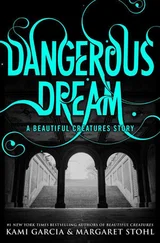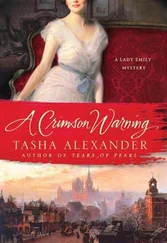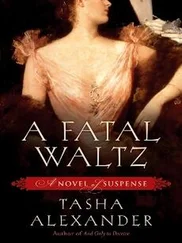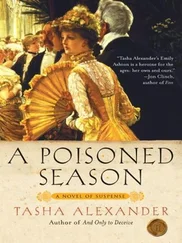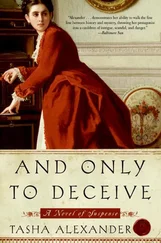“Madame Prier can’t hurt me, even if she’d like Laurent to scare me off.” I told her what had happened in the attic.
“Ridiculous,” she said. “But you must have been terrified. Don’t try to deny it—you’re still pale. What do you hope to find here?”
“Anything Edith’s written,” I said. “Diaries, letters, whatever there is.”
“Those won’t lead us to the child. I think it’s time to enlist the further help of Monsieur Leblanc. He may have journalistic contacts who could offer assistance.”
I nodded. “An excellent suggestion, Cécile. But I must ask if you’d be so keen to reconnect with him if he weren’t so handsome?”
She shrugged. “I wouldn’t say handsome . Dashing, perhaps. But he is, without question, far too young to be intriguing.”
“I shall get in touch with him first thing tomorrow morning,” I said as the door swung open and Colin strode into the room.
“How pleasant to find you both here,” he said. He kissed Cécile’s hand and my cheek. “Reminds me of long-ago afternoons in your library at Berkeley Square.” The house where I’d lived with my first husband proved an excellent place for me in the years following his death, and Colin and I had spent many happy hours in the library there.
“Those were lovely days,” I said.
“Idyllic,” he said.
“Did you find Monsieur Prier?” I asked.
“I did indeed,” Colin said. He pulled a flask of whisky from his jacket and poured a single finger into both of the glasses on the table near our fireplace. Cécile relieved him of one of them at once and he took a swig from the other before handing it to me. “He spends his evenings happily ensconced with his mistress and her daughter. They live not half a mile from this house.”
“How old is the daughter?” I asked.
“Just the right age to be the child whose presence has tormented you.”
“Did you confront the father?”
“The doting father,” he said. “I did and he was entirely nonplussed to find me shocked by the situation.”
“It is not, Monsieur Hargreaves, uncommon to find men in such situations,” Cécile said. “Do tell me you’re not naïve enough to believe otherwise.”
“No, no,” Colin said, sipping quickly from his flask. “It was his brazen attitude that surprised me. His wife knows about the child.”
“And what does she think?” I asked.
“She ignores the situation except at Christmas when she sends a heap of presents to the girl.”
“Extraordinary behavior for a spurned wife.” I drained my whisky, cringing as it stung my throat.
“Not extraordinary in the least for a doting grand-mère ,” Cécile said.
I dropped my head into my hands, almost laughing. “No—”
“It’s possible,” Colin said.
“Et tu?” I asked. “You’re supposed to be my pillar of reason!”
“Think on it, Emily—the doctor would have felt no compunction whatsoever at turning the baby over to Prier.”
“It’s far too convenient,” I said.
“Not every question has a complicated, interesting solution,” he said.
“Kallista, you’re coming over all rational,” Cécile said. “I’m not sure I like it.”
“I wish I could say I’d always been rational, but you both seem amused enough already. I have, however, learned something in these past years. The answer might not be complicated or interesting or even seemingly significant, but it’s almost never so easy. Can we interview the mistress? Her friends? It’s a pity there’s no way to prove whether she’s the baby’s mother.”
“Diverting though this speculation is, I must confess to having tested Monsieur Prier’s knowledge of Edith’s condition as obliquely as I could,” Colin said. “He didn’t say anything extraordinary, and certainly nothing that suggested he was aware of being a grandfather. I think we must assume the mistress’s child is, in fact, his.”
I couldn’t argue, but it felt all wrong. I had to find out what happened to Edith’s daughter.
The following morning, long before Cécile was awake, Colin and I set off to see Monsieur Leblanc, who had taken a room at a nearby tavern. Cécile, perhaps bent on proving she had no interest in the writer, had decided the night before not to join us. The tavern was a lively place, crowded from the moment it opened, its patrons friendly and open, engaged in each other’s lives. We inquired after our friend, and were directed to a pretty serving girl who went upstairs to alert him of our arrival.
“I have been productive, mes amis ,” he said, shaking Colin’s hand with youthful vigor as he joined us at our table. “The Priers are a bizarre family whose reach goes beyond Rouen. Lesser branches inhabit nearly every corner of Normandy and half of Brittany. Their poorest relations, however, are our own friends—your mother’s neighbors.”
“The Markhams?” I asked; he nodded and sat next to my husband.
“Madame Prier is of the same generation as Madeline’s mother,” he said. “They’re faraway cousins.”
“Which makes Madeline and Edith…” I stumbled over the genealogy.
“Some manner of relative not quite distant enough for Madame Prier,” he said. “It’s not entirely shocking when you consider the madness that plagues both branches of the family.”
“But the Markhams aren’t poor,” I said.
“The money is all George’s. Madeline’s great-great-grandfather was worse than a prodigal child. Gambled away what little money he had, but married decently because of his parents’ reputation. Eventually, his antics became notorious—illegitimate children, unpaid debts, a spectacularly undistinguished career in the army that resulted in him accidentally killing one of his friends. At last his father had enough and disowned him. Without the allowance to which he’d become accustomed, the château gradually fell into disrepair.”
“So how did Madeline’s mother come to be in the family seat?” I asked.
“No one else wanted it after two more generations of neglect. When she married Breton, a complete reprobate, they needed somewhere to live and had little choice but the old house. He treated her abominably until he was killed in a duel two months before their daughter was born. It’s not surprising the woman’s unbalanced,” he said.
“It’s more than that,” I said. “It’s hereditary—Madeline’s showing symptoms as well. And if Madame Prier knew of the family history—which, according to Dr. Girard, she did—she would have been horrified to see signs of the disease in Edith.”
“Do the families know of the connection?” Colin asked.
“Madame Prier didn’t admit to the relation when Cécile and I spoke to her about the Markhams. All she did was make it clear she disliked Madeline’s mother.”
“So far as I can tell, there’s been no interaction between them at all,” Monsieur Leblanc said.
“That’s not necessarily unusual,” Colin said. “Relatives are not obligated to like each other.”
“Bien sûr,” he said.
“But the murder,” I said. “Edith. Neither Madeline nor George showed any signs of recognition at her name.”
“It’s entirely possible they never knew her,” Monsieur Leblanc said. “Madame Prier, certainly, had no interest in pursuing any sort of acquaintance. I found the obituary written when her father died. It includes an exhaustive list of surviving family members—more cousins than I could count—but there’s no mention of Madeline’s mother.”
“Have you had any thoughts as to Monsieur Myriel’s identity?” I asked.
“Unfortunately not,” he said. “You did an excellent job querying the villagers. I don’t see what more we can do. Myriel is a dead end.” This struck me as an odd comment from a journalist—surely he would have faced equally difficult searches before and not backed down so quickly. “I don’t mean to frustrate you, of course, but it might be more profitable to try to locate Vasseur.”
Читать дальше

